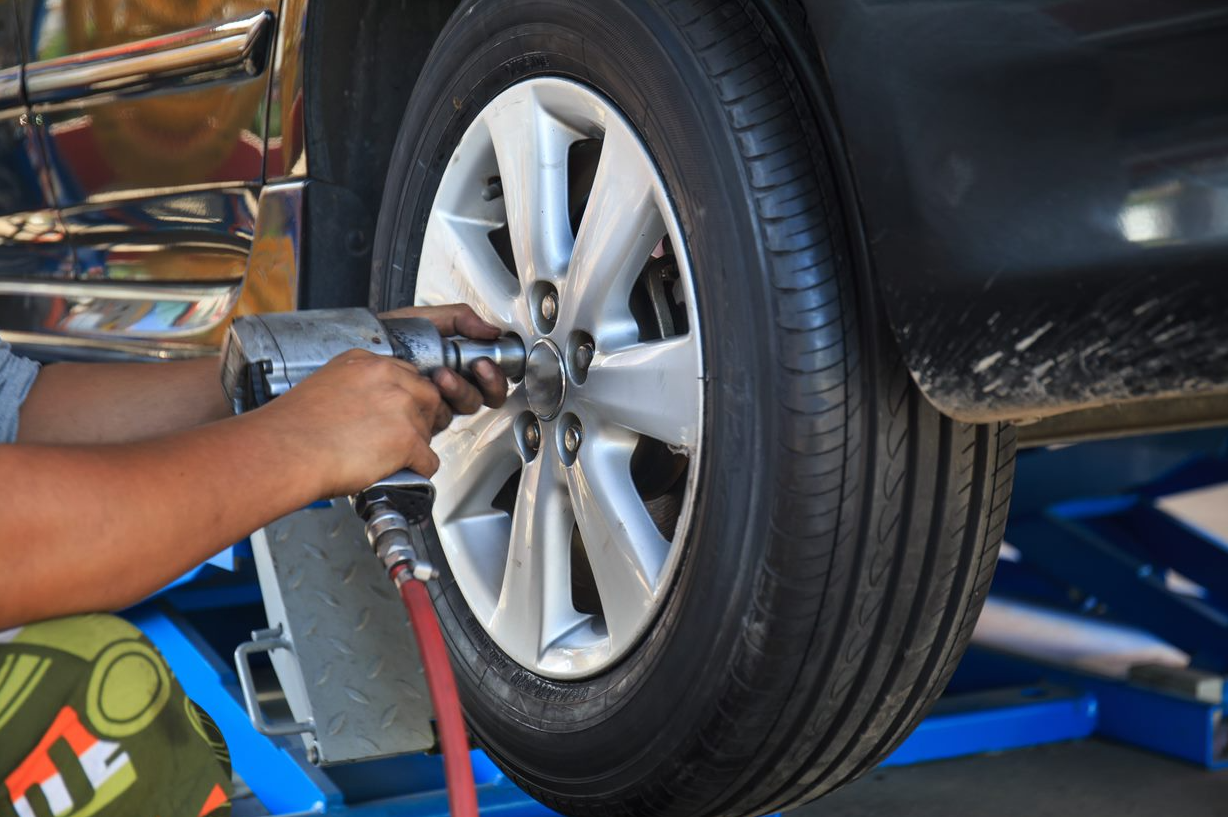Tire Service
Tire Replacement and Service in Odessa, TX
Need your tires repaired or replaced in the Odessa, TX area? Let Kelly Grimsley Honda help you with all of your tire needs! Our expert technicians in our Service Department are ready to have your vehicle back on the roads of Texas with brand new tires.
Unsure whether your car or truck needs new tires? Stop by Kelly Grimsley Honda to have our certified tire technicians check the wear, tread, and inflation pressure.
Above all, you'll have a great experience when you buy new tires from our service center. Our customer service is excellent and we believe in treating our customers the right way. Shop with us for an affordable selection of tires for your new or used car or truck! Schedule your tire service with us today!
Why Should I Rotate My Vehicle's Tires?
Your vehicle's tires will eventually wear, and because your front tires carry a heavier load, they tend to wear out faster. If you were to never rotate your tires, your tires would have very uneven wear. Tire rotation increases your safety behind the wheel and also extends the life of your tires so you can pay less on your next maintenance appointment.
Reference your owner’s manual for the optimal frequency to rotate your tires. A good rule of thumb is to consider rotating your tires every 5,000 miles.
How to Measure Tire Tread Depth
Tire tread depth is essential in maximizing performance and safety for your vehicle. Other benefits of good tire tread are improved gas mileage, improved traction, and an overall better driving experience. An easy way to measure if your tire tread is too shallow is the penny test! Simply insert a penny into your tire’s groove upside down, with Lincoln’s head facing towards you. If you can see all of Lincoln’s head and hair, your tire tread is below 2/32” and needs to be replaced immediately. The standard tread depth for brand new tires is typically around 10/32”.
Maintaining Proper Tire Pressure
Keeping proper air pressure in your tires is essential in making sure that your tires last longer, as well helps your car handle better and safer. Low tire pressures can effect braking distance and provide less responsive handling and steering at high speeds. Underinflated tires can allow the tire sidewalls to flex, causing heat which accelerates tread wear and in some cases may cause blowouts.
To find the correct tire pressure for your car, simply view your vehicle owner's manual or it should also be listed on the tire placard attached to the door edge or doorpost. You should check tire pressure regularly, at least once a month, and especially before any long road trips.

| Monday | 8:00AM - 6:00PM |
| Tuesday | 8:00AM - 6:00PM |
| Wednesday | 8:00AM - 6:00PM |
| Thursday | 8:00AM - 6:00PM |
| Friday | 8:00AM - 6:00PM |
| Saturday | 8:00AM - 12:00PM |
| Sunday | Closed |
| Monday | 9:00AM - 7:00PM |
| Tuesday | 9:00AM - 7:00PM |
| Wednesday | 9:00AM - 7:00PM |
| Thursday | 9:00AM - 7:00PM |
| Friday | 9:00AM - 7:00PM |
| Saturday | 9:00AM - 6:00PM |
| Sunday | Closed |
| Monday | 8:00AM - 6:00PM |
| Tuesday | 8:00AM - 6:00PM |
| Wednesday | 8:00AM - 6:00PM |
| Thursday | 8:00AM - 6:00PM |
| Friday | 8:00AM - 6:00PM |
| Saturday | 8:00AM - 12:00PM |
| Sunday | Closed |

